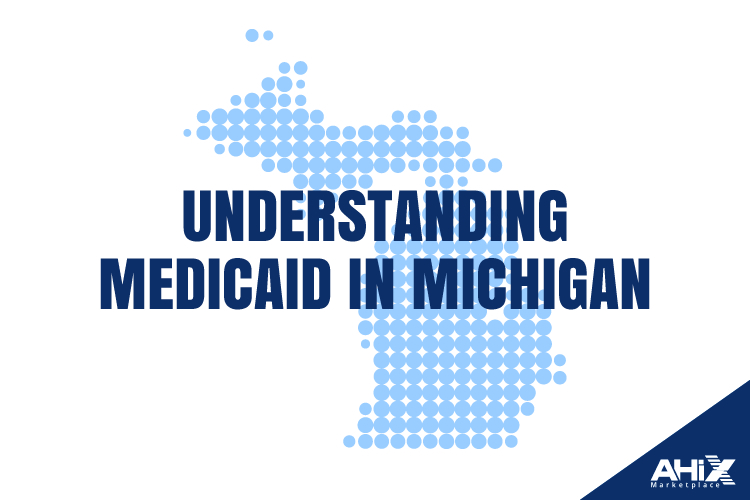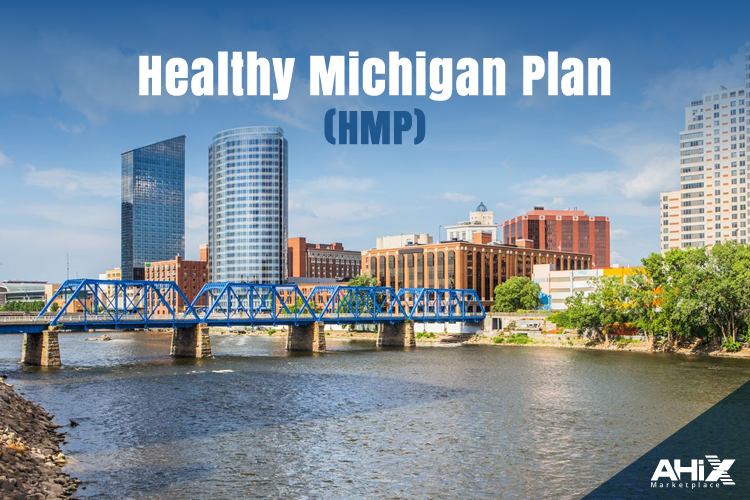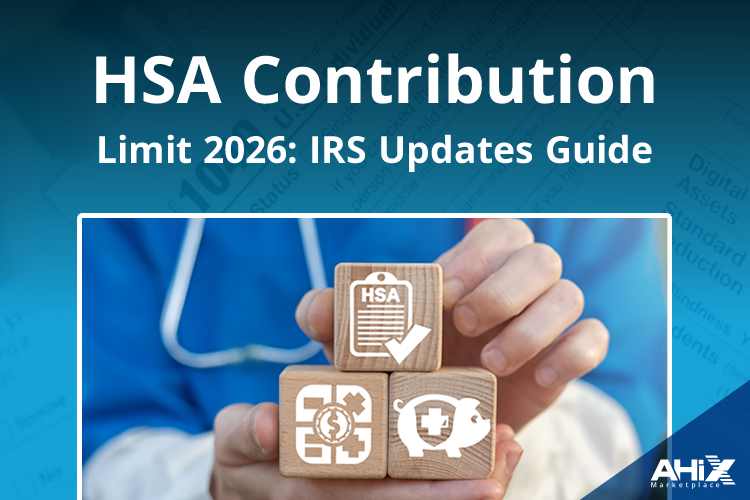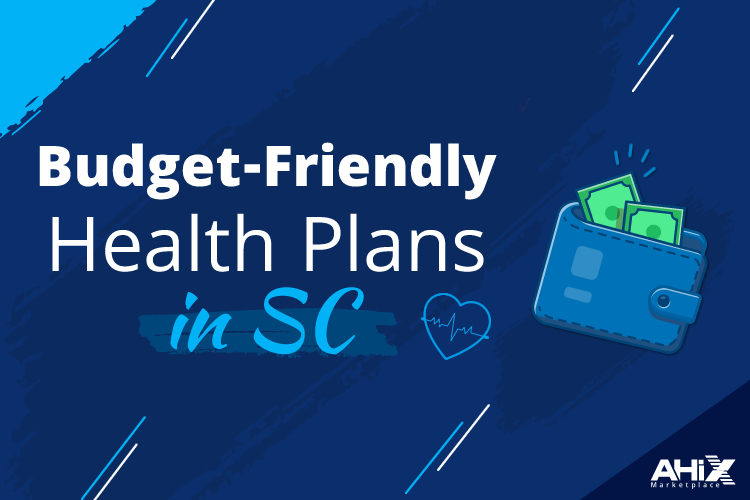Are you a low-income resident looking for health insurance in Michigan? If so, there are several programs that can help. Michigan offers Medicaid, the Healthy Michigan Plan, and the Children’s Health Insurance Program (CHIP), each designed to provide affordable health coverage. This article helps you determine your eligibility, understand the benefits, and navigate the application process.
Key Takeaways
- Medicaid in Michigan provides essential health coverage for low-income individuals, with varying eligibility criteria based on income, assets, and specific population needs.
- The Healthy Michigan Plan (HMP) offers comprehensive care for low-income adults aged 19-64, while the Children’s Health Insurance Program (CHIP) ensures access to health services for children in families that exceed Medicaid income limits.
- Applicants can submit Medicaid applications online through the MI Bridges portal or in-person at local DHHS offices, with a typical processing time of 45 days for eligibility determination.
Medicaid Coverage in Michigan: What You Need to Know

Medicaid is a jointly funded federal and state program that provides essential health coverage and medicaid coverage to low-income individuals of all ages in Michigan. The Michigan Department of Health offers various Medicaid programs tailored to assist low-income families, focusing on specific needs such as health care for children, pregnant women, and caretaker relatives, including Michigan expanded Medicaid.
These programs are crucial in ensuring that vulnerable populations have access to necessary medical services, from routine check-ups to more specialized care. Understanding Michigan Medicaid is crucial for determining eligibility and accessing vital health services.
Medicaid Eligibility Criteria
Michigan Medicaid eligibility is primarily based on income and assets. For adults, the household income limit is set at 133% of the federal poverty level (FPL), which can be adjusted to 138% with a 5% disregard. Thus, even slightly higher-income households might still qualify for Medicaid.
Different groups have varying income limits. Children up to one year old can qualify for assistance. This is possible if their household income is at or below 195% of the Federal Poverty Level (FPL). Pregnant women, disabled individuals, and those over 65 also have specific eligibility criteria for supplemental security income. Additionally, certain populations must adhere to asset limits, which include specific exempt assets like one home and one vehicle.
Medicaid also includes a spend-down process for individuals with high medical expenses, allowing excess income to be used for medical costs to meet eligibility. This flexibility ensures that even those with fluctuating incomes or substantial medical costs can access necessary health care services.
Modified Adjusted Gross Income (MAGI)
Modified Adjusted Gross Income (MAGI) plays a crucial role in determining Medicaid eligibility. MAGI includes not only adjusted gross income but also specific tax-exempt and non-taxable income. This measure provides a comprehensive view of a household’s financial situation for eligibility assessment.
In Michigan, MAGI is used to compare a household’s income against federal poverty guidelines to determine if they qualify for Medicaid. Income changes can significantly impact eligibility, so applicants must stay informed and report any changes promptly.
Healthy Michigan Plan (HMP)

The Healthy Michigan Plan (HMP) is a cornerstone of Michigan’s expanded Medicaid program. Initiated in 2014, HMP was designed to provide comprehensive health care coverage to low-income individuals aged 19-64 who meet specific income criteria. This program is a significant part of Michigan’s efforts to ensure broader access to health insurance for its residents.
HMP offers a wide range of benefits, including essential health services mandated by federal law, making it an invaluable resource for those who qualify. Knowing the eligibility requirements and benefits of HMP helps individuals and families secure necessary health care.
HMP Eligibility Requirements
Eligibility for the Healthy Michigan Plan requires an income at or below 133% of the federal poverty level, determined by MAGI. Applicants must be between 19 and 64 years old and not enrolled in Medicare or other Medicaid programs.
There are no asset limits for HMP, simplifying the application process for many. However, applicants must ensure they are not pregnant at the time of application and meet all other specified criteria to qualify.
Benefits and Coverage under HMP
The Healthy Michigan Plan provides a comprehensive suite of health care services, ensuring that beneficiaries have access to necessary medical care. This includes emergency care, hospitalization, maternity care, mental health services, prescription medications, and preventive care.
The plan’s coverage ensures individuals receive necessary health care to maintain their well-being. HMP offers extensive support from routine check-ups to specialized treatments, aiding in the management of both acute and chronic health conditions.
Children’s Health Insurance Program (CHIP)

The Children’s Health Insurance Program (CHIP) in Michigan is designed to provide health insurance to children who do not qualify for Medicaid due to family income levels. CHIP ensures that children from low-income families have access to essential health services, promoting better health outcomes and development.
CHIP bridges the gap for those between Medicaid eligibility and private insurance affordability, playing a vital role in maintaining children’s health and well-being in Michigan.
MIChild Program
The MIChild program, a CHIP initiative, targets uninsured children under 19 from low-income families with household incomes up to 212% of the Federal Poverty Level. Charging a nominal fee of $10 per family per month, the program ensures cost is not a barrier to health care access.
MIChild provides comprehensive coverage, including preventive care, hospital visits, and mental health services, ensuring that children receive the necessary medical attention to thrive.
Children’s Special Health Care Services (CSHCS)
Children’s Special Health Care Services (CSHCS) provides health coverage for children and certain adults with special health needs, covering medically necessary services regardless of family income. This program focuses on specific medical conditions, providing support to individuals under 26 years old.
CSHCS supports families dealing with complex medical conditions, mitigating the financial burden of ongoing care.
Additional Medicaid Programs for Low-Income Families
Beyond the primary Medicaid and CHIP programs, Michigan offers additional Medicaid options tailored to support low-income families. These programs address specific needs, ensuring comprehensive health care coverage for various situations.
Programs like the Maternal Infant Health Program and Caretaker Relatives Medicaid provide targeted support, ensuring vulnerable populations receive necessary health care program services.
Maternal Infant Health Program (MIHP)
The Maternal Infant Health Program (MIHP) supports pregnant women who do not qualify for traditional Medicaid due to higher incomes. MIHP offers essential health services to ensure the health of both the mother and the infant during and after pregnancy.
Providing prenatal and postnatal care, MIHP aims to improve health outcomes for mothers and babies in low-income communities.
Caretaker Relatives Medicaid
Caretaker Relatives Medicaid offers health care coverage to relatives caring for dependent children, ensuring access to comprehensive medical services. This program requires meeting specific income and asset tests to qualify.
Supporting caretaker relatives, this program ensures kids receive stable and secure care, fostering better health and development outcomes.
Step-by-Step Guide to Applying for Medicaid in Michigan
Medicaid applications in Michigan can be submitted online via the MI Bridges portal or in-person at local DHHS offices. Familiarity with these processes helps applicants navigate the system effectively and ensures timely access to health care services.
Online Application via MI Bridges
The MI Bridges portal offers a convenient and accessible method for applying for Medicaid online. Applicants must create an account to start the application process, and the portal supports multiple languages, including English, Spanish, and Arabic.
The system allows users to upload documentation and track their application’s status, streamlining the process.
In-Person Application at DHHS Offices
For those preferring or requiring in-person assistance, local Department of Health and Human Services offices provide an option. DHHS offices across Michigan offer paper applications and personal assistance to help applicants.
Locations such as Clinton Township, Sterling Heights, and Warren offer comprehensive support, ensuring that all necessary documentation is submitted and any questions are addressed promptly.
Post-Application Process
Once the Medicaid application is submitted, the processing time typically spans 45 days. Knowing what to expect during this period helps manage expectations and prepare for the next steps.
Verification and Approval
The verification process involves confirming the information provided in the application, which may require additional documentation. Eligibility determinations focus on residency, income, and asset limits set by state guidelines.
Applicants can check their eligibility status and manage their application through the MI Bridges portal, ensuring they stay informed throughout the process.
Receiving Benefits
Once approved, Medicaid recipients can access their benefits using a health plan card. This card allows beneficiaries to receive a wide range of health services, ensuring they get the care they need.
Caretaker Relatives Medicaid supports relatives caring for dependent children, helping them maintain their caregiving roles with necessary health services.
Maintaining Medicaid Eligibility
Beneficiaries must complete annual renewals and regularly update their contact information to maintain Medicaid eligibility. Michigan restarted annual renewals in June 2023, so beneficiaries must verify their eligibility to avoid losing benefits.
Updating information through Michigan.gov/MIBridges ensures beneficiaries receive important renewal notifications and can make necessary changes to their health plan during open enrollment periods.
Summary
Navigating Michigan’s Medicaid programs is essential for low-income families seeking affordable health coverage. Understanding eligibility criteria, application processes, and available benefits ensures that individuals and families can access the care they need.
AHiX offers Michigan health insurance plans to help residents find the best coverage options. By staying informed and applying on time, families can secure reliable health insurance through Medicaid, the Healthy Michigan Plan, and CHIP. Explore your options today with AHiX and get the coverage you deserve!
Frequently Asked Questions
1. What is the income limit for Medicaid eligibility in Michigan?
The income limit for Medicaid eligibility in Michigan is 133% of the federal poverty level, with a possibility of increasing to 138% due to a 5% disregard.
2. How do I apply for Medicaid in Michigan?
To apply for Medicaid in Michigan, you can do so online through the MI Bridges portal or visit your local Department of Health and Human Services office in person.
3. What benefits does the Healthy Michigan Plan offer?
The Healthy Michigan Plan provides comprehensive health care services, ensuring access to emergency care, hospitalization, maternity care, mental health services, prescription medications, and preventive care. This plan significantly enhances health outcomes for its enrollees.
4. Who is eligible for the Children’s Health Insurance Program (CHIP) in Michigan?
Children under 19 in Michigan who do not qualify for Medicaid because of their family’s income level are eligible for the Children’s Health Insurance Program (CHIP), specifically through programs like MIChild for low-income families.
5. How do I maintain my Medicaid eligibility in Michigan?
To maintain your Medicaid eligibility in Michigan, ensure you complete annual renewals, update your contact information, and verify your eligibility by the specified deadlines. Staying proactive in these areas is essential to avoid losing your benefits.



